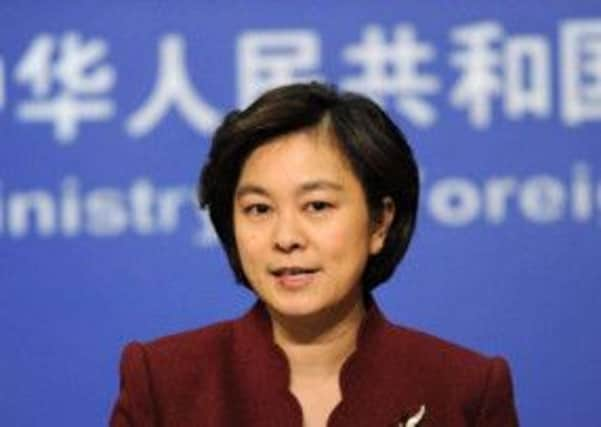US accuses China of spying as military modernised


In its 83-page annual report to Congress on Chinese military developments, the Pentagon also cited progress in Beijing’s effort to develop advanced-technology stealth aircraft and build an aircraft carrier fleet to project power further offshore.
The report said China’s cyber snooping was a “serious concern” that pointed to a greater threat because the “skills required for these intrusions are similar to those necessary to conduct computer network attacks”.
Advertisement
Hide AdAdvertisement
Hide AdIt said: “The US government continued to be targeted for [cyber] intrusions, some of which appear to be attributable directly to the Chinese government and military.” The report said the main purpose of the hacking was to gain information to benefit defence industries, military planners and government.
A spokeswoman said it was the first time the annual Pentagon report had cited Beijing for targeting US defence networks, but China yesterday dismissed the report as groundless.
Chinese foreign ministry spokeswoman Hua Chunying said that the US Defence Department had repeatedly made “irresponsible comments about China’s normal and justified defence build-up and hyped up the so-called China military threat”.
She said: “This is not beneficial to US-China mutual trust and co-operation. We are firmly opposed to this and have made representations to the US side.”
China’s defence build-up was geared towards protecting its “national independence and sovereignty”, Ms Hua said. On the hacking accusations, she said: “We firmly oppose any groundless criticism and hype, because groundless hype and criticism will only harm bilateral efforts at co-operation and dialogue.”
Despite concerns over the intrusions, a senior US defence official said his main worry was the lack of transparency.
David Helvey, deputy assistant secretary of defence for East Asia, said: “What concerns me is the extent to which China’s military modernisation occurs in the absence of the type of openness and transparency that others are certainly asking of China.”
He warned of the “potential implications and consequences of that lack of transparency on the security calculations of others in the region”.
Advertisement
Hide AdAdvertisement
Hide AdThe annual China report comes amid ongoing tensions due to China’s military assertiveness and claims of sovereignty over disputed islands – Beijing has ongoing territorial disputes with the Philippines, Japan and other neighbours.
Beijing’s publicly-announced defence spending has grown at an inflation-adjusted pace of nearly 10 per cent annually over the past decade, but Mr Helvey said China’s actual outlays were thought to be higher.
China announced a 10.7 per cent rise in military spending to the equivalent of $114 billion (about £73.6bn) in March, the Pentagon report said. Publicly-announced defence spending for 2012 was $106bn, but actual spending could be as much as $215bn, the report said. US defence spending tops $500bn.
The report highlighted China’s continuing efforts to gain access to sophisticated military technology to fuel its modernisation programme, including “state-sponsored industrial and technical espionage”.
Dean Cheng, an analyst at the conservative Heritage Foundation think-tank in the US, said he was surprised by the number of cases of human espionage cited in the report, saying: “This is a PLA [People’s Liberation Army] that is extensively, comprehensively modernising.”